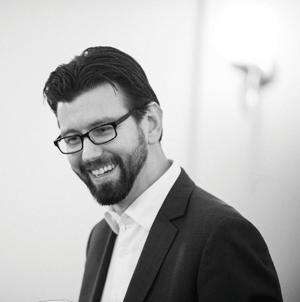Building a Knowledge Culture at State Trustees

Stewart MacLeod, Manager, Knowledge and Development at State Trustees, believes KM must work hand in hand with culture and competency strategies, to ensure that employees share and support one another.
KM practices have developed over a period of years at Victoria’s State Trustees, a Victorian government owned organisation that helps Victorians with wills, enduring powers of attorney, estate administration and private and charitable trusts. State Trustees also looks after the financial and legal affairs of nearly 10,000 Victorians who are unable to do so themselves due to disability, mental illness or other circumstance.
At State Trustees these practices are generally included as, for instance, ‘lessons learned’ in project work, rather than being called out as distinctly KM.
Over more than 75 years, the organisation has gone through the typical migration from physical files and archives to a digital case management platform. There are over 400 staff across three sites and the agency has deployed the Objective EDRMS.
The role of Knowledge Manager was created over three years ago, “as a recognition that there was a huge amount of institutional or organizational knowledge which needed to well be better managed, be better captured, be better shared, and that we needed to have a more specialised function to do that,” said MacLeod.
“An organisation of our vintage needs to keep on updating and innovating the way that we do things, and no organisation can stay still.
“Also the nature of our scale and industry means that State Trustees needs to do certain things in a way that not many other organisations do. So just picking up someone from another organisation and slotting them right in does not work.
“With that in mind it is really important that we capture what it is that we do and why it is that we do it in that particular way. So that’s really the setting for how knowledge management started to emerge in a more concrete way rather than being just one of those things that people do in the background which then gets pushed down the list of priorities.
MacLeod does not believe that KM is something you can buy off the shelf as a software packaged solution.
“All the tools in the world aren’t going to assist unless you start getting the culture right. You need to get people happy to share, you need to get people in the mindset that they want to change first. Software may assist that but for me it’s fundamental to get the cultural piece done first,” he said.
“Often what happens with organisations that when you try to transform an organisation or try to change a process, people try to hang onto the old ways of doing things or they don’t want to share knowledge. A “burning platform” change model is about saying we must change or else, we cannot continue on the way that we’ve continued on, we must share in new ways, we must learn in new ways, we must learn from each other in new ways.
“For me part of KM is focussing on essential versus non-essential knowledge or important versus nice to have. Let’s actually work out what is the knowledge that we need to capture so that we can meet best practice standards rather than what’s the knowledge that might be shared more often but isn’t actually particularly helpful to achieve that end.
“Culture is absolutely tantamount. Any kind of sharing tool is not going to work unless you get the environment right.
Stewart MacLeod is presenting a session at Knowledge Management Australia 2015 being held from August 4-6, 2015 at Rydges Melbourne. kmaustralia.com
